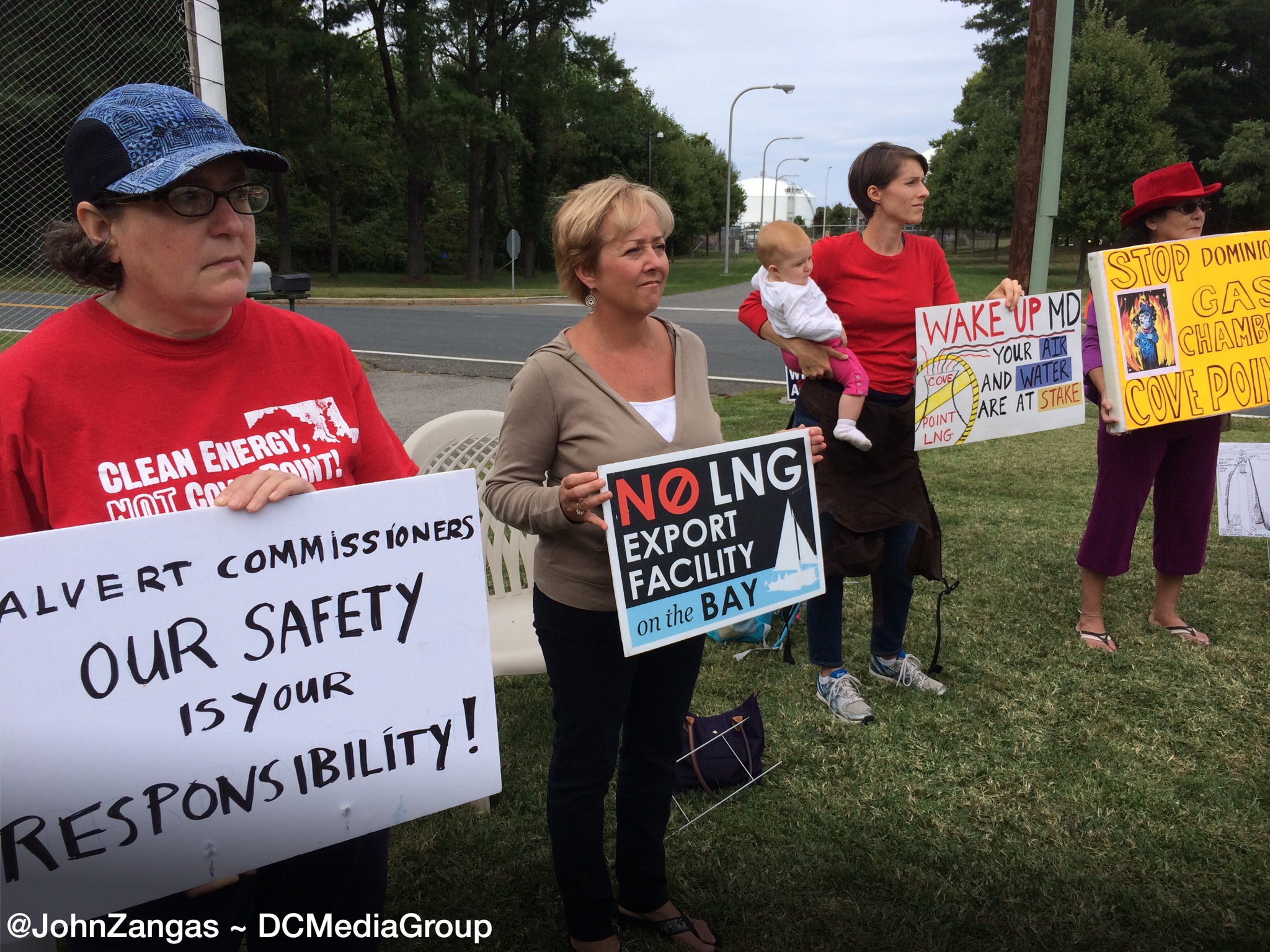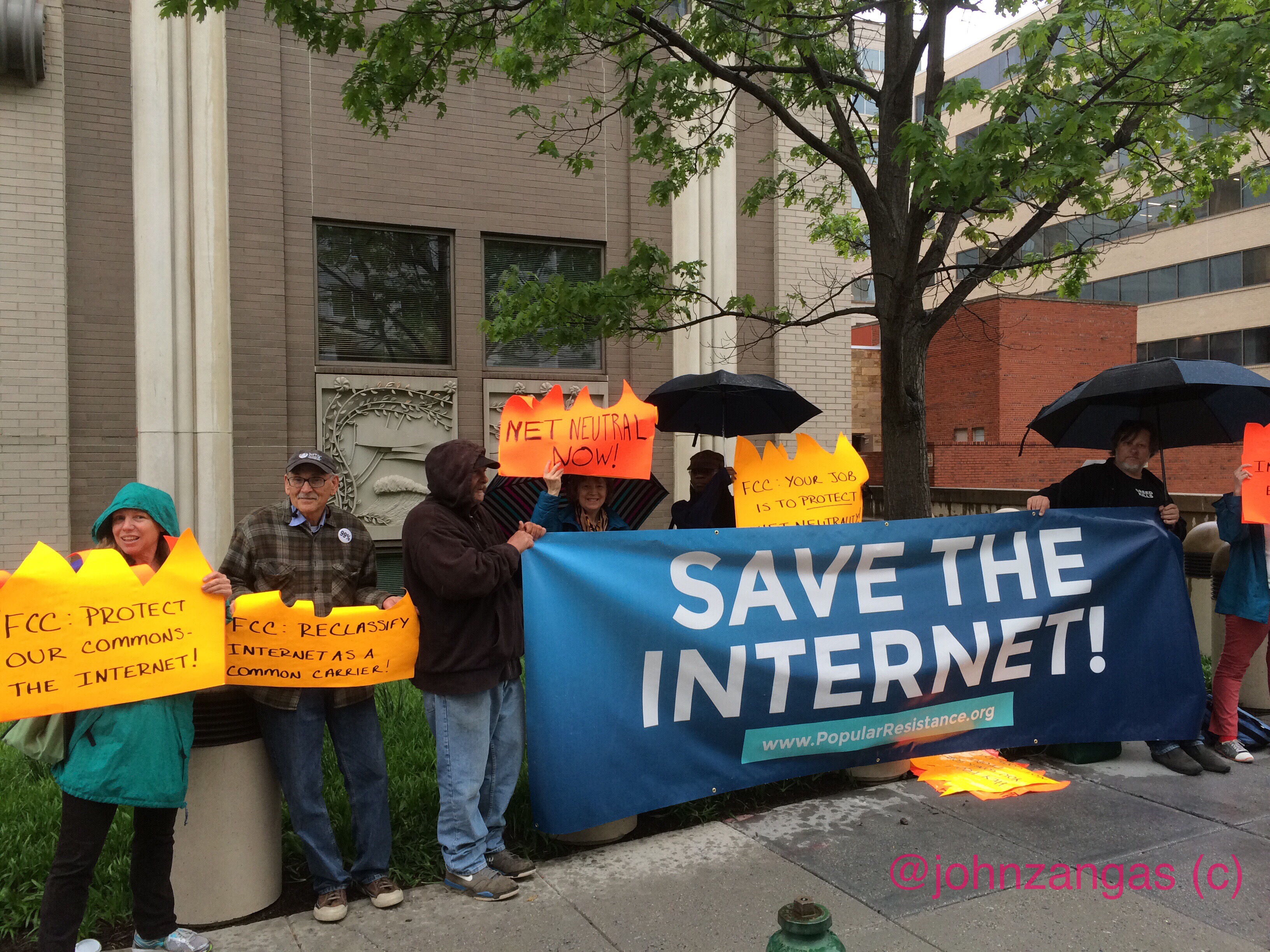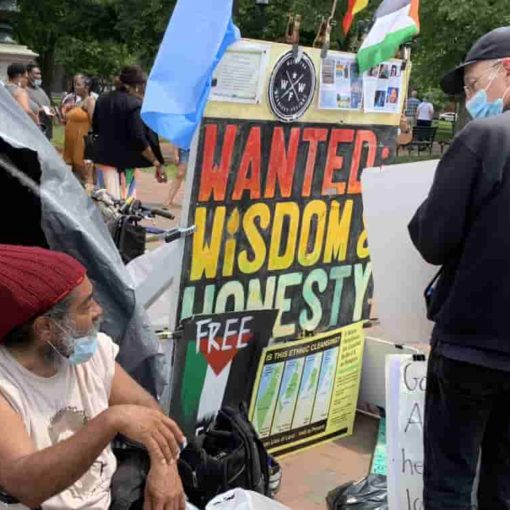Advocates and residents of Cove Point denounced energy giant Dominion’s plans to build a liquid natural gas (LNG) plant near their homes during a press conference Friday. They spoke from the front lawn of Dominion Cove Point’s nearest neighbor, Rachel Heinhorst.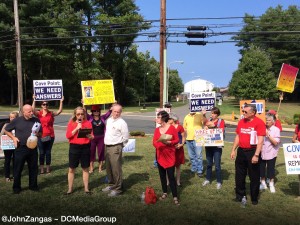
“I am holding on to hope…there will be a realization of the careless decision to let this happen here so close to my family,” said Heinhorst, a mother of three who has lived near Cove Point for 8 years.
Their criticisms of Dominion’s plan were in clear view of its front gate as trucks pulled in and out of the busy facility while front gate security officers stood watch. They held hand made signs which read “Stop Cove Point” “Cove Point-We Need Answers” and “Our Safety is Your Responsibility.”
Cove Point residents and advocates believe the facility will pose grave dangers to their homes, health and the environment. They have compiled documentary evidence, conducted studies and relied on academic and scientific analysis to rebut the Federal Energy Regulatory Commission’s (FERC) approval of Dominion’s LNG proposal.
The residents spoke of the project details, explaining shortcomings of the FERC Environmental Assessment (EA), how it glossed over all of their concerns, which were entirely dismissed in FERC’s approval of the project. They explained how their collective research as well as that of academics, scientists and advocates, formed a basis to support a more in-depth Environmental Impact Study (EIS) which FERC, they say should have conducted.
FERC approval gives the green light for Dominion’s permit to build the LNG plant, which would process fracked gas for export. Residents are concerned by the amount of gas approved in the permit, its close proximity to their homes, the environmental effects on their air and local water, and the safety of the 20,000 residents of nearby Lusby.
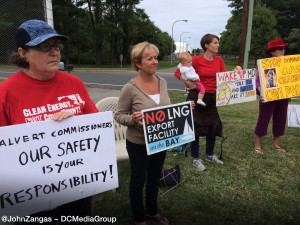 Ken Prichard, a Lusby resident since 1987, expressed grave concerns that FERC relied on Dominion’s “own risk calculations” which were “not subject to verification by any third party.” He cited “2000 people” who live in a “blast/fire -kill zone identified by MD Department of Natural Resources” but FERC made “only a passing reference to death and serious injury” in the kill zone. He spoke of the “no escape zone” for the 265 homes with residents forced to escape past the LNG plant should an accident occur. “There is no way out for them except right through or by the actual source,” he said.
Ken Prichard, a Lusby resident since 1987, expressed grave concerns that FERC relied on Dominion’s “own risk calculations” which were “not subject to verification by any third party.” He cited “2000 people” who live in a “blast/fire -kill zone identified by MD Department of Natural Resources” but FERC made “only a passing reference to death and serious injury” in the kill zone. He spoke of the “no escape zone” for the 265 homes with residents forced to escape past the LNG plant should an accident occur. “There is no way out for them except right through or by the actual source,” he said.
Dominion plans to build two more tanks to the existing site to store more volitile LNG which will be piped in gas form from fracking wells. The gas will then be liquified on the shores of Chesapeake Bay and piped underwater to tankers at an off shore terminal.
Dr. David Lewis, Professor of City & Regional Planning at Cornell University said, “FERC certainly should have had a substantive environmental impact assessment-which they didn’t.” He was concerned primarily with the FERC process, calling it “more of a rubber stamp” than a process. “If these tanks explode here is going to be scorched earth,” he said.
Its too much of a risk said attorney Marcia Greenberg, a resident of St Mary’s county. “Don’t think this is somebody else’s problem-its gonna be everbody’s-because this is not a local issue.” She attended the press conference out of concern for plans to link associated fracking wells to gas pipelines and build compression station projects which would support the DCP proposal. “I think the people in this region from Maryland to Virginia to DC need to know this wont happen without a lot more infrastructure and it will be in their backyard,” she said.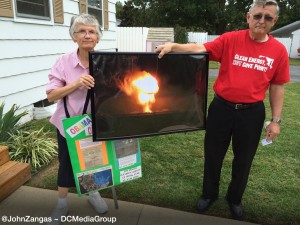
Kelly Powell, a mother of three, said she was concerned about the air and water her children will inherit. “I think we all have a responsibility to become educated and educate our neighbors…so they fully understand whats at stake,” she said.
Tracey Eno, co-founder of Calvert Citizens for a Healthy Community (CCHC) said “From the start, the people living near the Dominion Cove Point facility have not been represented or protected by elected officials…from the county to state to federal levels.” Eno said she was “appalled” by government officials and agencies and vowed CCHC would “redouble their opposition” to the proposed plant.
“This is not a done deal, its nearly the beginning of the next chapter,” said Eno who remains undaunted. “At this point we have nothing to lose because we have everything to lose.”

